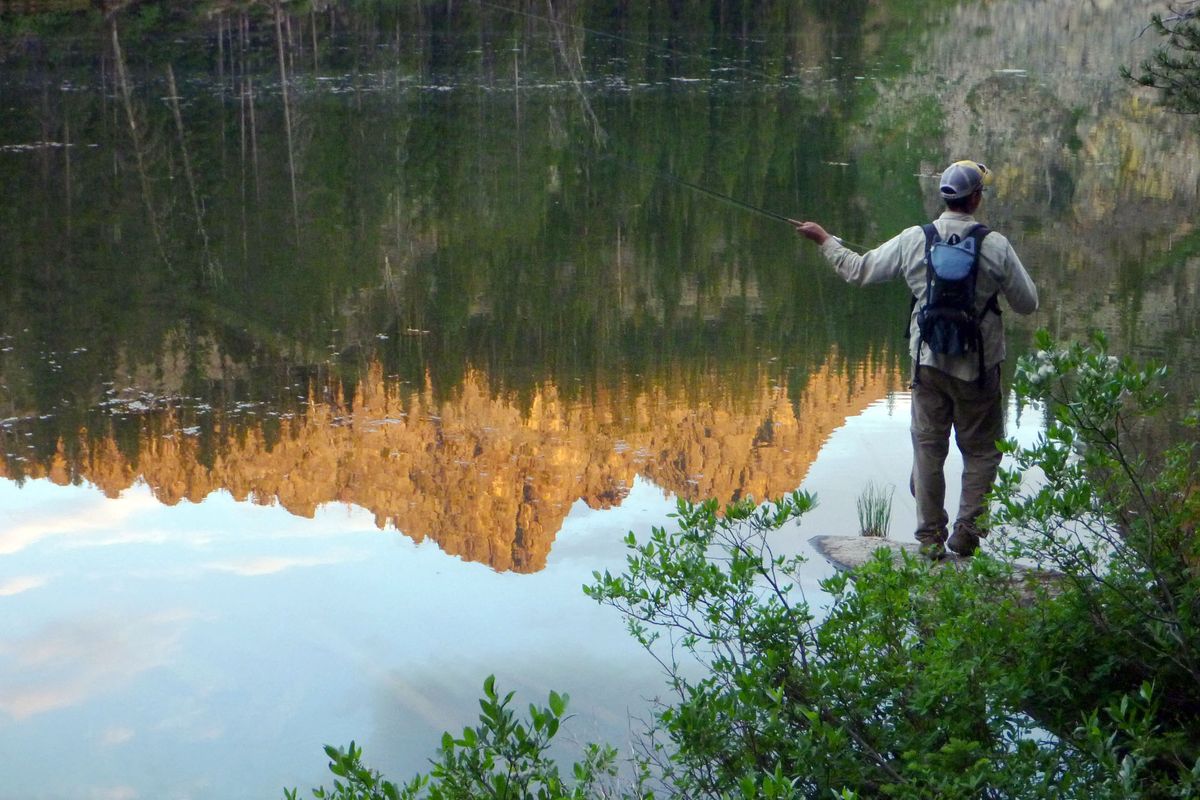Guns, rods & wilderness: Backcountry sportsmen convene in Spokane

Sportsmen hooked on the rewards of hunting and fishing beyond roads and rigs are dropping their packs in Spokane this week.
The 4th annual North American Rendezvous of Backcountry Hunters & Anglers (BHA) will convene at the Red Lion in the Park on Friday and Saturday. The schedule includes a brewfest, workshops, banquets, keynote address by a TV hunting show host, a film presented by an ethicist and other programs open to the public for the price of a ticket.
“We started around a campfire in Oregon 11 years ago,” said Land Tawney, BHA executive director in Missoula.
“We realized that while there were other good sportsmen’s groups out there, none was focused on the backcountry. We saw this need to promote access and quality habitat and create a sportsman’s voice for wild public lands, water and wildlife.”
The group is grassroots and attracted members mostly by word of mouth until 2010 when the first professional staff was assembled.
BHA has chapters in 22 states and members in all 50 states, Tawney said, noting that Facebook followers have increased from 17,000 last year to 65,000 this year.
“What binds us is a desire for the adventure, solitude and challenges only backcountry can provide,” he said.
Hunting and fishing are spawning new constituencies for public lands advocacy, including more women hunters and anglers as well as locovores and an emerging breed of backcountry athletes, he said.
“Our organization is reaching out to all of them,” Tawney said.
BHA has focused considerable attention recently to the issue of transferring federal public land to state control. The group was involved last month in public rallies at state capitols in Montana and Idaho.
“We see states trying to take over national forests and BLM areas as a threat to public lands that could lead to privitization and loss of habitat and access,” Tawney said.
“Our point is that whether you’re a man or woman, rich or poor, public lands are a place hunters and anglers can live like a king. It’s like having a big backyard.”
The group promotes responsible use of off-road vehicles and offers a standing reward for information that leads to conviction of ORVers who ride into closed areas and cause resource damage.
“There’s a lot of frustration over illegal ATV use,” he said, noting that hunters, anglers, public agency officials and private land owners all have had to deal with the issue.
“When you park your truck at the gate or boulders piled up to close an old road, you expect to walk in and enjoy the opportunities those rules provide – more security for game and a higher quality experience for the hunter,” he said. “If you hike several miles and find ATVers riding illegally behind the gates it doesn’t set well.”
The group advocates “fair chase hunting,” and has stepped up its opposition to the use of drones packing cameras for scouting and hunting.
“We also support collaborative efforts, such as the Clearwater Collaborative, where all sorts of groups and industries come together to look at large landscapes and work out plans,” Tawney said.
“The results are not perfect for everybody, but they’re a path forward to managing a watershed. It took a decade, but the Clearwater agreements are leading to designating 200 miles of wild and scenic rivers, the longest ATV routes in the West and suggested wilderness as well as approved timber harvest – something for everyone. It’s a way out of the world of lawsuits.”
BHA along with Trout Unlimited and a few other sportsmen’s conservation groups have been labeled by conservative watchdog groups as “green decoys” that sportman’s organizations should shun for their environmental agenda.
“We’ve taken the criticism as positive,” Tawney said. “They’re not real clear on where their money is coming from, but the result is pale, pasty folks in Washington, D.C., with little or no outdoor experience, trying to tag us with a derogatory label.
“We’re merely reviving a pattern of conservation with sportsmen that started with (Teddy) Roosevelt and (George Bird) Grinnell.
Tawney is a fifth-generation Montanan from a family steeped in hunting, fishing, horses, mules and conservation.
He has a University of Montana degree in wildlife biology and has worked for wildlife-related conservation groups, including the National Wildlife Federation.
He’s worked on trying to influence Congress in reforming the 1872 Mining Law and its threats to water quality for native fisheries.
Before taking the helm of BHA in 2013, he campaigned to curb the loss of coastal land in the Mississippi River Delta, which winters 11 million ducks and geese every year and supports world-class redfish and speckled trout fishing.
“I challenge anyone to take a look at what BHA has done and name one thing that’s anti-sportsman,” he said.
“Sportsmen care about conservation. We’re just providing a platform for them to engage these issues.
“It’s not a with-us or against-us thing. We’re doing good things for hunters and anglers, period.”